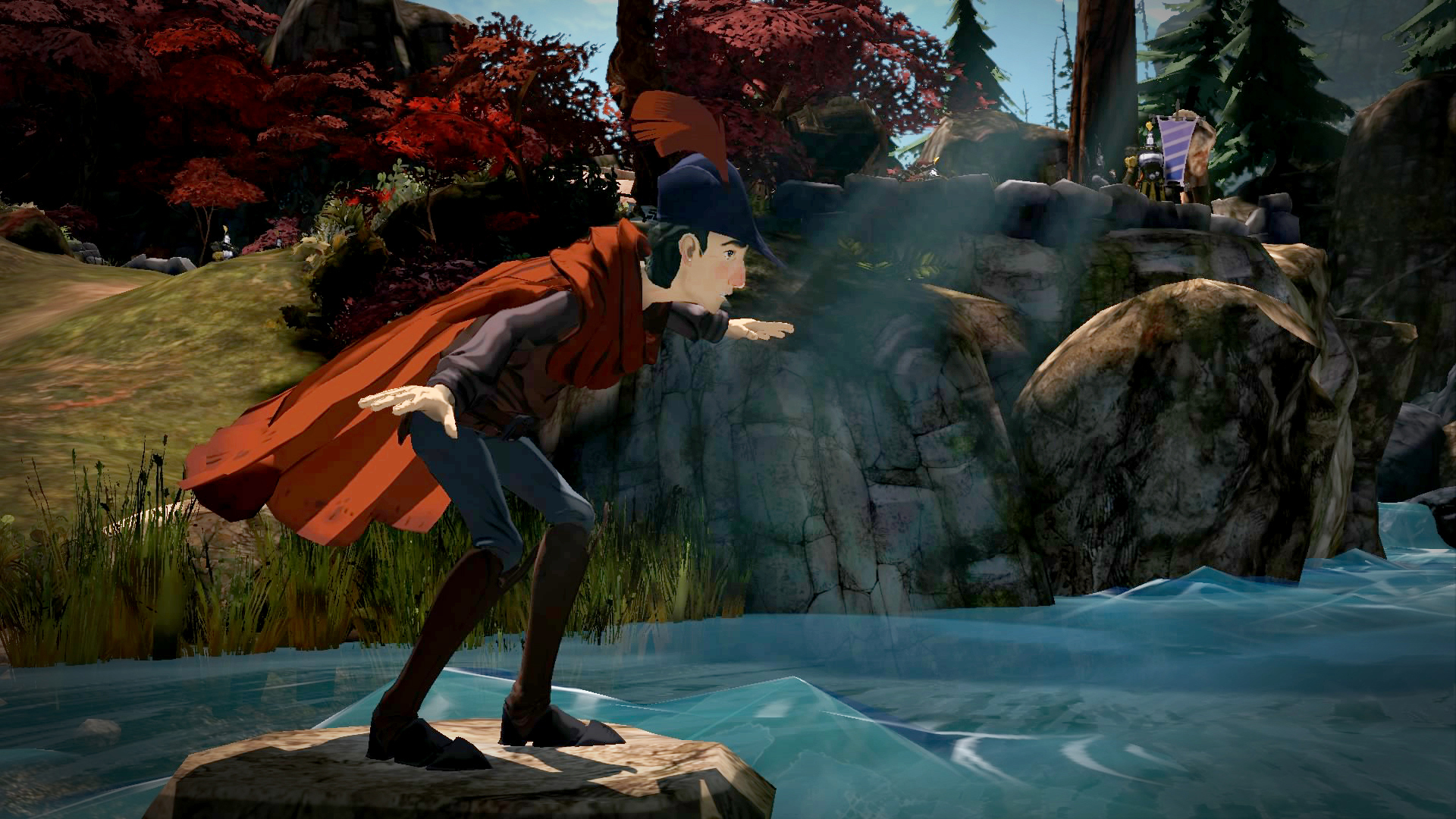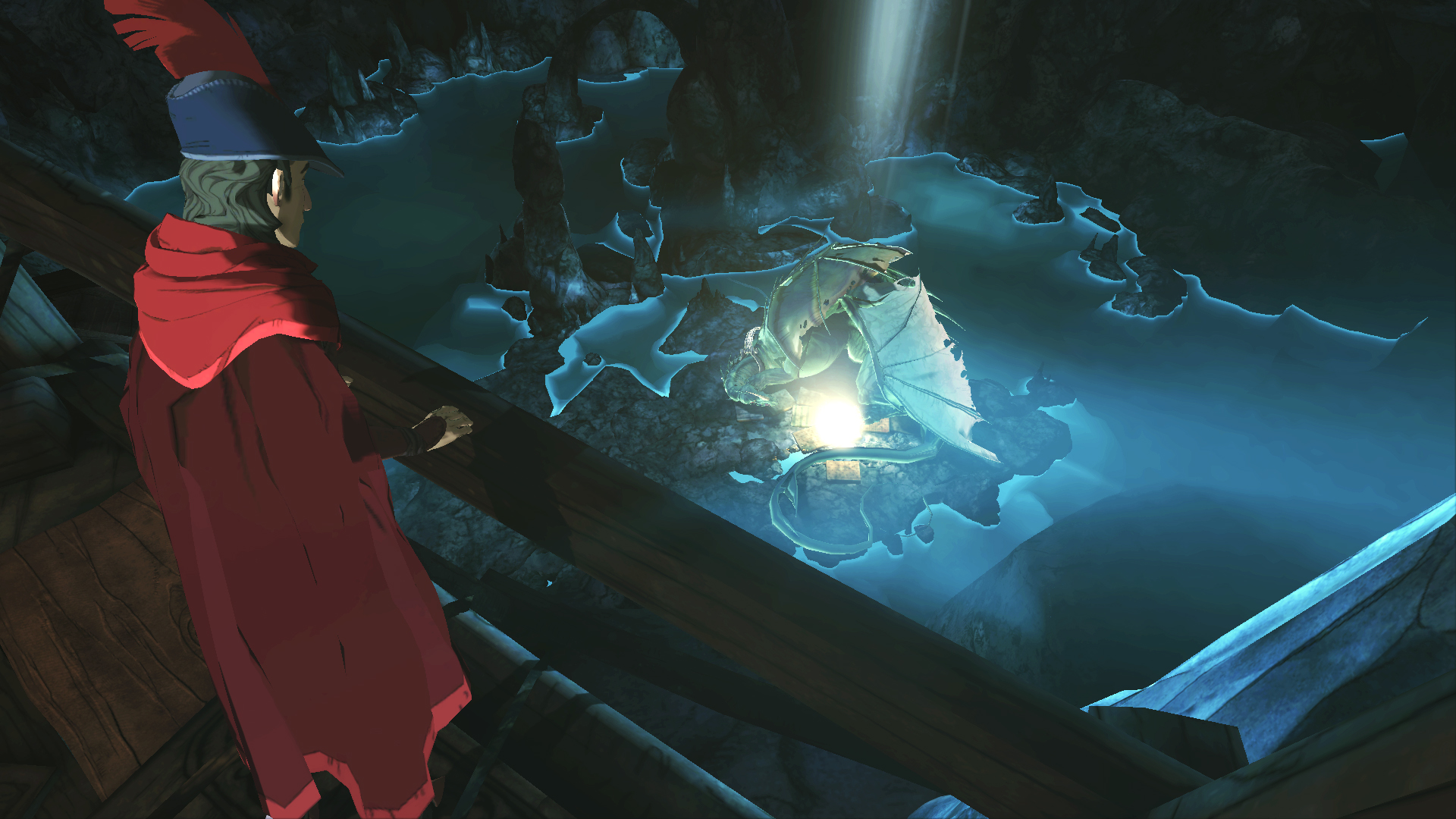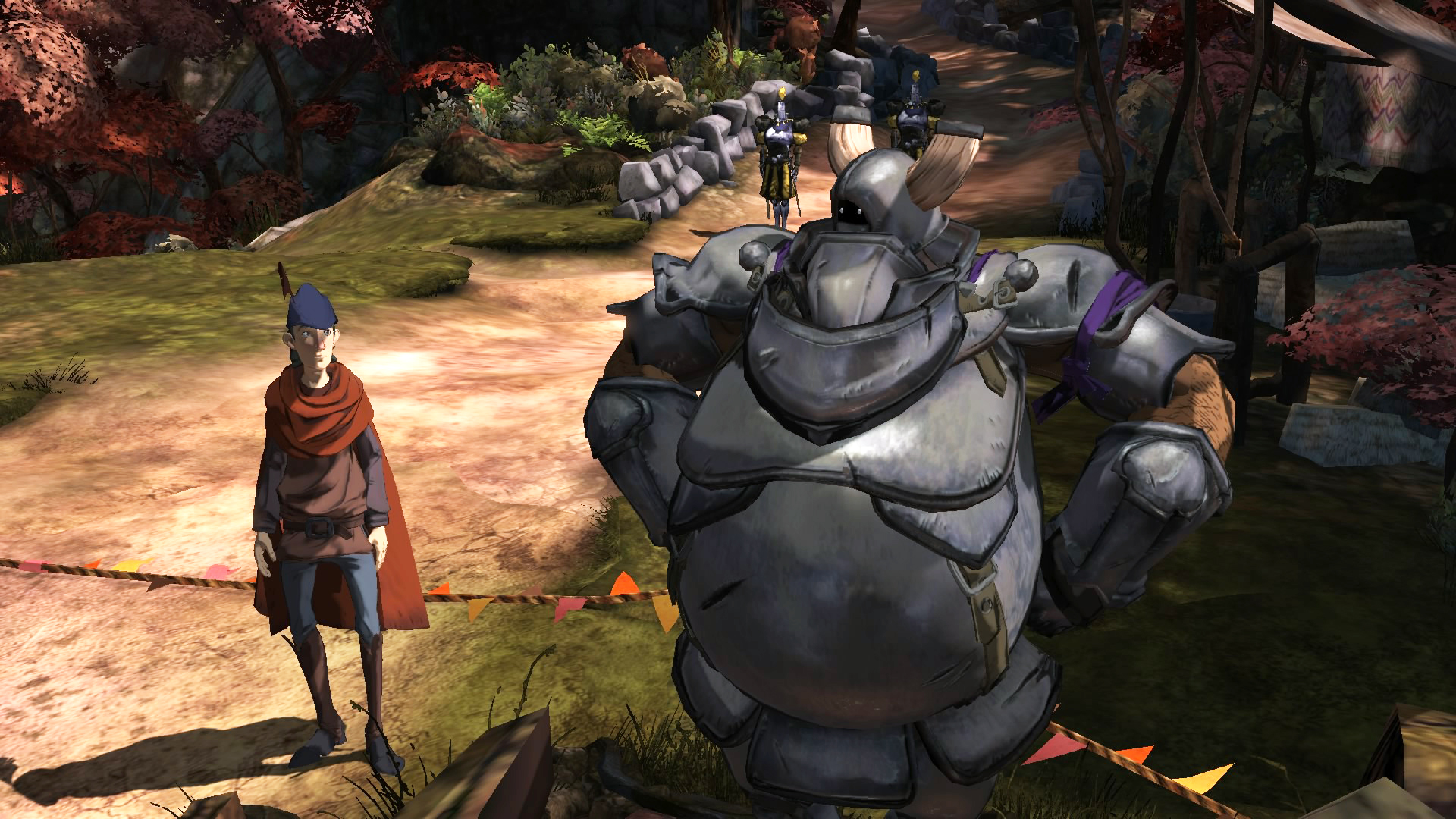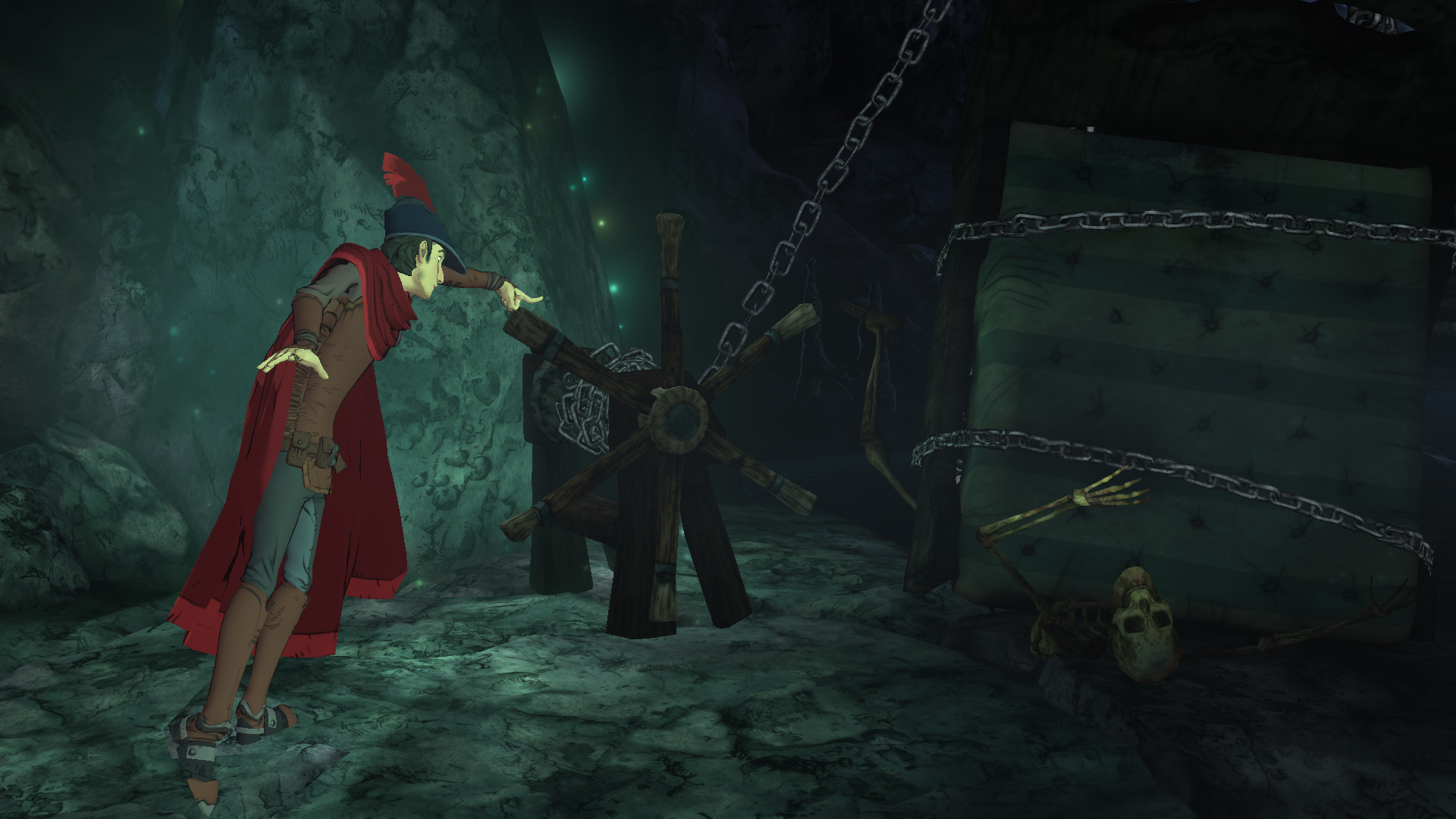Why the King’s Quest demo reignited my love for adventure games

King’s Quest has me excited for the future of adventure games. Until I sat down for a demo of The Odd Gentlemen’s modern take on the 30-year-old series, I didn’t know I was unexcited for the future of adventure games. But as I watched designer Matt Korba walk a gangly King Graham through a hand-painted forest, red cape billowing around him, and got a look at some simple puzzles and King’s Quest-style death scenes, I realized why I’m suddenly excited for this game and what it seems to be shooting for. It’s an 80s or 90s adventure game in spirit, with charm and puzzles and funny dialogue, but updated to tell its story with the gaming technology of 2015.
There are a couple different takes on the adventure genre right now. There’s Double Fine’s Broken Age, a classic point-and-click with tons of great, silly dialogue and inventory puzzles. It’s a game that could’ve been made 20 years ago, except the art is beautiful, it’s full of voice acting, and the interface is very simplified. Part one of Broken Age was too easy, which felt a bit like a modern concession, considering how challenging older adventure game puzzles could be. The second approach is Telltale’s The Walking Dead. Telltale has minimized puzzles and inventory down to the point of near-nonexistence to focus on story. Crucially, Telltale has also built its modern adventure games in 3D, with more cinematic camera angles suited to dramatic storytelling. Telltale’s games focus on what was always a strength of the adventure genre—story and dialogue—by completely stripping out the 'gameplay' many players loved.
From my half hour demo of King’s Quest, I think it looks and moves like The Walking Dead, but plays much like a point-and-click adventure. It’s obviously in 3D, and Graham can be moved around with a mouse or a controller. Context-sensitive interactions like “look” and “pick up” are mapped to face buttons and show up as big icons on-screen (Korba says they drew inspiration from King’s Quest V for these). Graham automatically leaps gaps and climbs outcrops. The game’s recent trailer, showing Graham traipsing around the 3D environments, made King’s Quest look like a platformer. That’s the skin. The bones are pure classic adventure.

The demo I watched saw Graham exploring a dragon’s cavern in search of a magic mirror that should be familiar to King’s Quest fans. The level serves as a tutorial for the game, so it’s light on puzzles, and they’re easily solved at a glance. As Graham explores, the voice of his granddaughter Gwendolyn will pipe up with questions or comments. King’s Quest’s narrative framework is that old King Graham is telling his granddaughter stories of his past adventures, and his grandfatherly voice often breaks in with commentary to add context or foreshadowing.
We skipped to another area, the forest of Daventry, where Graham has to do some more light puzzle solving to make his way to a parade for prospective knights. Again, none of the puzzles are particularly challenging—shaking a tree to drop a beehive on some unsuspecting guards, finding a rope to bind together a raft—but the structure and tone of King’s Quest feel right. They feel like King’s Quest.
The writing evokes the goofiness of Sierra’s classic games. The brief bits I saw weren’t always laugh-out-loud funny, but a couple made me chuckle, and the wonderfully expressive animation adds an element of slapstick I didn’t expect. Lanky Graham is shoved around like a lovably dopey loser. A merchant he meets in the forest bounces around like a Looney Tunes character, wildly waving his hands and talking a mile a minute. Korba says they’re shooting for a 1980s fantasy vibe with Jim Henson as an inspiration. The characters believe in themselves. There’s no cynicism or sarcasm in how they’re represented. From what I saw, King’s Quest nails that tone.

According to Korba, after the sequence in Daventry, King’s Quest’s first chapter will open up to allow the freedom to explore. He stressed how important the original game was in inspiring this structure. If the demo left me with any concerns, it’s that the puzzles might be too easy, a concession to contemporary players who quickly grow impatient. (Also my biggest disappointment with Broken Age). Korba said that the ability to explore and progress through the game in a few different ways—not just solving puzzles—will allow them to make some of those puzzles more challenging. Mercifully, they’re avoiding the hair-pulling obtuseness of a certain infamous cat hair moustache puzzle.
The biggest gaming news, reviews and hardware deals
Keep up to date with the most important stories and the best deals, as picked by the PC Gamer team.
Even with placeholder voice work, the whimsy of King’s Quest’s writing and animation feels like the freshest evolution of the spirit of adventure games I’ve seen for some time. The game’s planned episodic structure, with each ‘chapter’ telling a story from some point in Graham’s life, will allow The Odd Gentlemen to play loose with time and location and let their creativity flourish. I’m hopeful they’ll capitalize on that. I’ve only seen a small slice of an unfinished game, and there are a lot of puzzles to build and jokes to nail for King’s Quest to live up to my expectations.
Today’s point-and-click adventures are reliant on nostalgia, like welcoming the return of old friends. But King’s Quest seems like it has a shot at being something more, and that makes me excited to see where the genre goes next, rather than the path it's already walked.


Wes has been covering games and hardware for more than 10 years, first at tech sites like The Wirecutter and Tested before joining the PC Gamer team in 2014. Wes plays a little bit of everything, but he'll always jump at the chance to cover emulation and Japanese games.
When he's not obsessively optimizing and re-optimizing a tangle of conveyor belts in Satisfactory (it's really becoming a problem), he's probably playing a 20-year-old Final Fantasy or some opaque ASCII roguelike. With a focus on writing and editing features, he seeks out personal stories and in-depth histories from the corners of PC gaming and its niche communities. 50% pizza by volume (deep dish, to be specific).

